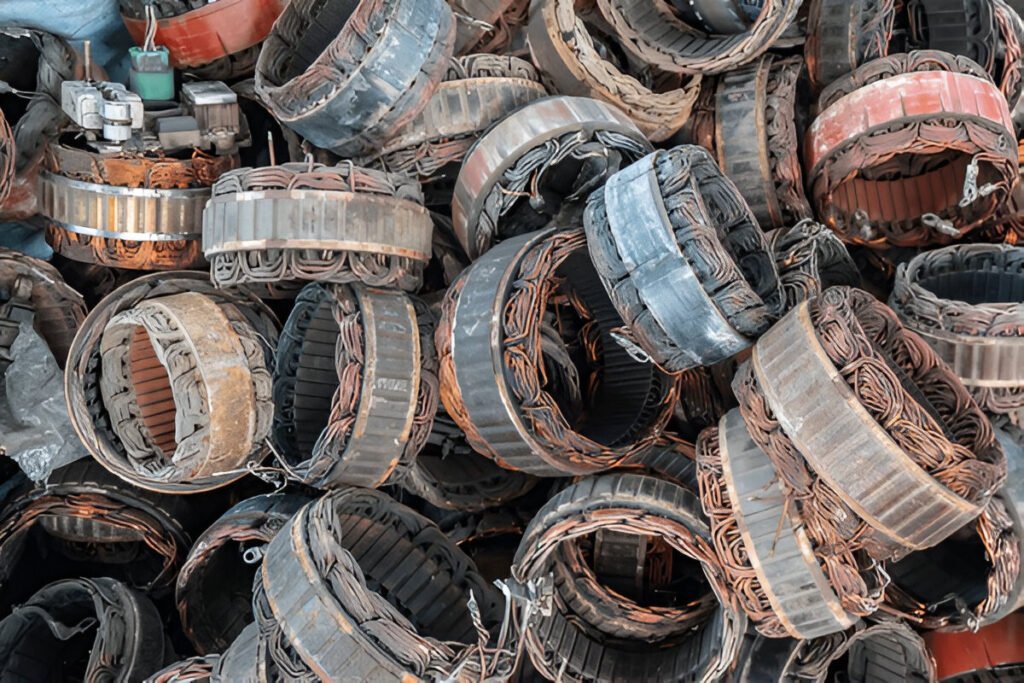Scrapped Transformer are essential components of the electrical grid, but like all equipment, they eventually reach the end of their service life. When a transformer is no longer functional or economically repairable, it doesn’t simply get tossed away. Instead, it enters a detailed scrapping and recycling process that recovers valuable materials and minimizes environmental impact. But what exactly happens to a transformer after it’s scrapped? Let’s explore the step-by-step breakdown of this important process.
Step 1: Decommissioning and Transportation
The first step in scrapping a transformer involves safely decommissioning it from service. This requires a thorough inspection to ensure that all electrical power is shut off and any hazardous materials, like insulating oils, are handled appropriately. Once the transformer is disconnected, it is carefully transported to a recycling facility or to a transformer company like JJ TRANSFORMERS, which specializes in the safe removal and resale of transformer components.
Step 2: Draining and Handling Insulating Oil
Most transformers, especially older models, contain insulating oil—often mineral-based or synthetic. Before any dismantling begins, this oil must be drained and treated. Depending on its condition, the oil can be recycled, reprocessed, or safely disposed of following environmental regulations. At JJ TRANSFORMERS, all oil removal is conducted in compliance with safety and environmental standards.
Step 3: Dismantling the Transformer
Once the oil is removed, the transformer is disassembled piece by piece. This includes separating the steel casing, copper windings, aluminum parts, core steel, and other internal components. These materials are sorted based on their recycling potential. For example, copper and aluminum windings are valuable and often reused in manufacturing new transformers or other electrical equipment.
Many companies looking for a transformer to buy or parts to refurbish may source high-quality components from these dismantled units. This extends the lifespan of materials and supports a more sustainable electrical industry.
Step 4: Recycling Valuable Materials
Scrapped transformers are a goldmine for recyclable materials:
- Copper Windings: Highly conductive and in demand, these are melted down and repurposed.
- Steel Core: Usually recycled for industrial use.
- Aluminum Components: Also recovered and reused.
- Bushing and Insulators: Sometimes resold if in good condition.
These parts often re-enter the market through transformer services or are sold to companies seeking to buy used transformers for various applications.
Step 5: Environmental Compliance and Safe Disposal
Anything that can’t be reused or recycled must be disposed of responsibly. This includes contaminated materials, degraded insulation, and non-recyclable plastics. A reputable transformer company ensures all waste is processed in accordance with environmental laws, minimizing the impact on ecosystems and communities.
Step 6: Resale and Second Life
Not all scrapped transformers are beyond repair. Some units are still in decent condition and can be refurbished. These are cleaned, tested, and made available as used transformers for sale near me through industry leaders like JJ TRANSFORMERS. This gives businesses access to affordable, reliable power solutions without the need for brand-new equipment.
If you’re a company looking for a transformer to buy, or if you’re interested in finding top transformer options that have been expertly refurbished, the used market offers both value and sustainability.
Final Thoughts
Scrapping a transformer is more than just tearing it apart—it’s a carefully managed process that supports recycling, reusing valuable resources, and protecting the environment. At JJ TRANSFORMERS, we specialize in the responsible handling of retired electrical equipment, offering a wide range of transformer services and an extensive inventory for those looking to buy used transformers.
Whether you’re interested in decommissioning a unit or browsing used transformers for sale near me, trust our expertise and commitment to sustainability.



